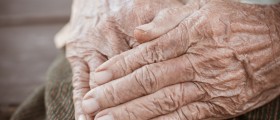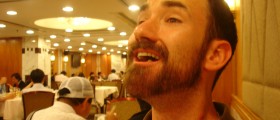
Down syndrome goes hand-in-hand with numerous physical and mental problems. Therefore, even when the negative symptoms of this condition are not present at birth, these might appear during adulthood. Today, with many treatments and a better level of understanding of this condition, people with Down syndrome commonly reach their 60s or live enough to reach their mid 50s.
Frequently Seen Diseases in People with Down Syndrome
People who suffer from this condition often suffer from thyroid problems and forms of hearing impairment. Additionally, their hearts may be prone to different cardiovascular conditions and vision loss may strike them too.
Seizures may be seen in Down syndrome patients along with health problems regarding joints, muscles, bones or nerves. Furthermore, Down syndrome patients are considered to be prone to developing cancer, particularly leukemia. Also, their body may suffer from infections commonly associated with their immune system dysfunction.
Finally, apart from having visible developmental problems, these people are prone to suffering from mental conditions like Alzheimer's disease and mental retardation too.
Coping with Down Syndrome
Due to the above mentioned list of possible health problems, people with Down syndrome need to be very careful regarding their well-being. Namely, they need to undergo regular checkups and screenings, take medications on a daily basis, undergo certain surgeries which might help getting rid of some of the physical symptoms or health problems and be in constant contact with medical experts for counseling and support purposes.
All the diseases commonly seen is Down syndrome patients may jeopardize their lives and lead to premature death due to health deterioration. Therefore, attending regular checkups and reacting timely when problems appear is a very important step for all people suffering from this disorder.
Even though Down syndrome patients may need to take medications regularly, not any medication type is currently capable of curing this condition.
Surgeries are necessary mainly due to heart and lung problems and almost 50% of all Down syndrome patients suffer from these. Some of the most common heart problems that these individuals face are tetralogy of the fallot, persistent ductus arteriosus, atrial septal defect and ventricular septal defect. If these problems are ignored, they usually evolve into pulmonary hypertension and make matters worse. Thus, timely treatment is a must.
Finally, surgeries may be helpful with removal of cataract, which is reported in about 3% of all Down syndrome patients. As for the counseling, both the patient and his/her family may need it, as well as all other types of support they can get. Thus, they can meet social workers, counselors or clergy members, seeking help and advice.

















Your thoughts on this
Loading...